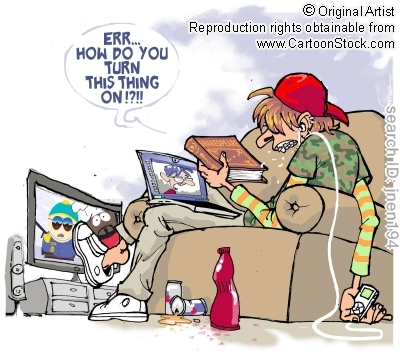LizzieMaine
Bartender
- Messages
- 34,175
- Location
- Where The Tourists Meet The Sea
I read Double Fold a few years ago and was somewhat astonished to discover that librarians--at least the ones in administrative positions in big libraries--aren't really into books, per se, but cataloging systems. They are apparently in a panic about the notion of paper copies deteriorating (probably the funniest part of the book, in a ghastly way, is detailing an attempt at deacidifying volumes using dangerous amounts of explosive chemicals).
As Baker points out, the rumors of paper's coming extinction are greatly exaggerated. The bound newspaper volumes I own -- which clearly haven't been stored optimally since their "liberation" from the LOC -- are still perfectly solid and readable. The paper is tanned, but not browned or brittle. As long as you keep newsprint out of sunlight and in a cool environment, it will last for a very long time. Instead of panicking over the impending disintegration of paper, the library industry would be better served by coming up with non-invasive, non-destructive methods of scanning them in such detail that no information is lost and the originals can be kept for future use.
Of course, nothing can be done to retrieve what's already been lost. Great swaths of our printed history have already been willfully destroyed because they didn't suit the agenda of those responsible for preservation. And it's not just the *great* newspapers that are lost -- most journalism students have heard of Bernarr MacFadden's New York Evening Graphic, the outlandish 1920's tabloid that nonetheless gave the world Walter Winchell. Well, nowhere in the world -- nowhere -- does a complete run of that paper survive in any format, bound volume, microfilm, or scan. And how many small-town country weeklies are completely, irrevocably lost?
We like to think that we live in a time where history is permanent, that we can never forget the past, that the records we leave be hind will survive forever. And yet much of our history hasn't even survived the generation that created it.



